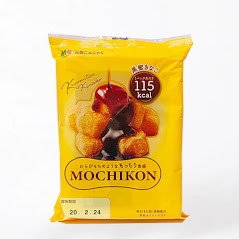Japan, well known for its rich culture, breathtaking landscapes, and new technologies, is also a hub for food exploration. Sushi, ramen, and tempura are essential Japanese food but halal food in Japan is a rising trend. In recent years, Japan has made progress in serving the dietary needs of Muslim visitors and residents. Japan now offers a diverse array of Halal-certified products and eatables. Let's explore the Halal food in Japan.
Japan is not a Muslim-majority country, an unlikely place for Halal food lovers. However, with the increasing influx of Muslim tourists and the growing Muslim population in the country, the demand for Halal products has increased. There is a diverse range of halal products. Halal-certified food abounds in Japanese supermarkets and special halal stores. Popular Japanese snacks like rice crackers (sensei), seaweed snacks (nori), and mochi are available in Halal variants, allowing Muslim visitors to enjoy Japan's cuisine without compromising their dietary restrictions.
Halal Dining Experiences
While exploring the vibrant streets of Japan, Muslim visitors can also enjoy Halal dining experiences at numerous restaurants and eateries across the country. Cities like Tokyo, Osaka, and Kyoto boast a burgeoning Halal food scene, with dedicated Halal restaurants, and food trucks.
Through food, people from different backgrounds can connect, share experiences, and appreciate each other's traditions and customs. Japanese chefs and food enthusiasts have embraced the challenge of creating Halal versions of their beloved dishes, resulting in innovative culinary creations that appeal to diverse palates.
Furthermore, the availability of Halal food in Japan not only enriches the travel experiences of Muslim visitors but also encourages Japanese locals to explore and embrace international cuisines. As Japanese society becomes more multicultural and inclusive, the appreciation for Halal food serves as a testament to Japan's commitment to diversity and hospitality.
In conclusion, Halal food in Japan represents not only a culinary journey but also a celebration of cultural diversity and mutual respect. Through its embrace of Halal cuisine, Japan opens its doors to visitors from all around the world, inviting them to experience the richness of its food culture while honoring their dietary preferences and religious beliefs. Whether indulging in Halal snacks from a bustling Japanese market or savoring a Halal-certified ramen bowl in a quaint Tokyo eatery, the experience of Halal food in Japan is sure to leave a lasting impression of warmth, hospitality, and culinary delight.


Comments
Post a Comment